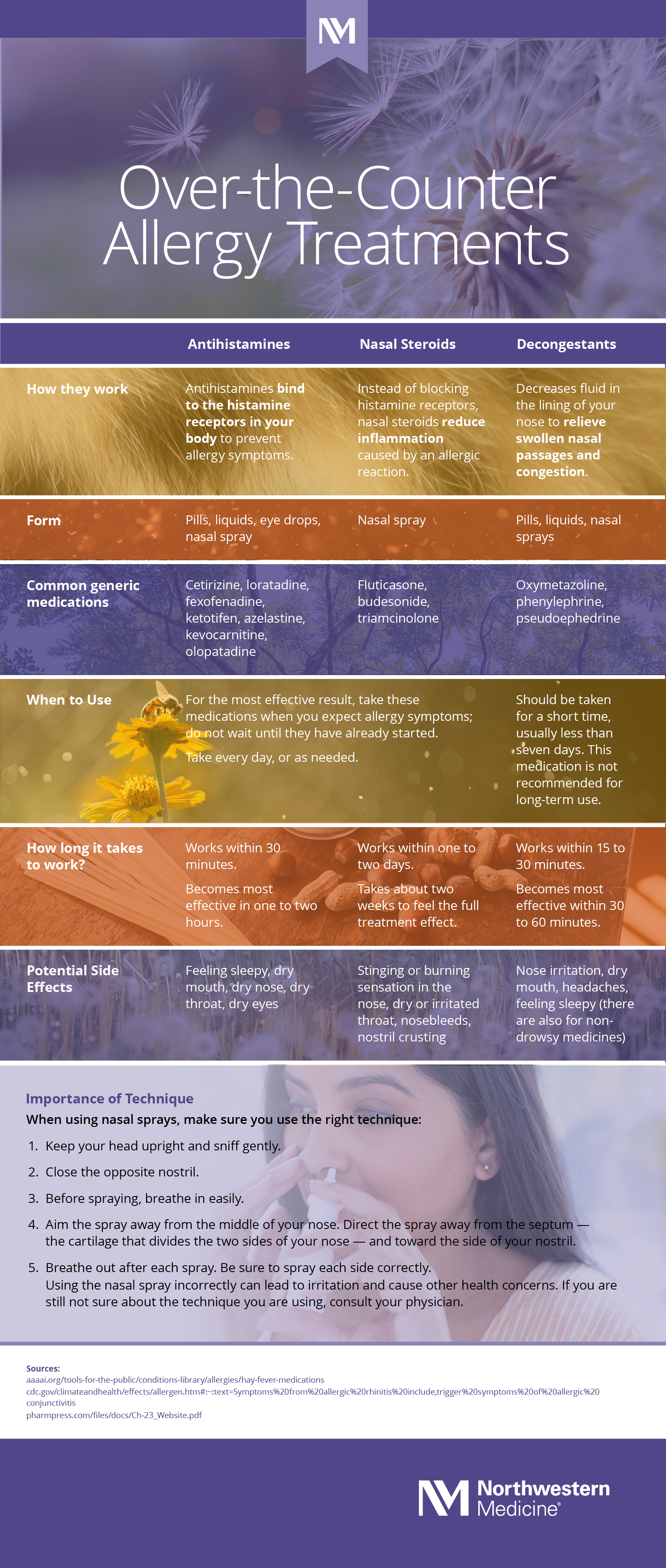A Guide to Over-The-Counter Allergy Treatments [Infographic]
Which Medication Is Right for You?
Published July 2023
It's allergy season: You're experiencing watering eyes, an itchy nose and constant sneezing — resulting in a headache. Now, you're at your local pharmacy, and after staring at the many over-the-counter allergy medication options, you are wondering: What is the best choice for me?
To effectively fight your allergies, you must confirm that your symptoms are in fact allergy symptoms, and not symptoms of a cold, flu or COVID-19, as there is crossover between them.
Common symptoms of an upper respiratory virus:
- Fever/chills
- Sore throat
- Respiratory illness
- Muscle and body aches
- Congestion
- Sneezing
- Coughing
- Runny nose
- Fatigue
- Headache
Common symptoms of seasonal allergies:
- Congestion
- Sneezing
- Coughing
- Itchy or watery eyes
- Runny nose
- Nasal itching
When you have an allergic reaction, your body mistakes something that's normally harmless (like pollen) for a potential threat. To protect you, your body releases a substance called histamine, which causes allergy symptoms like swelling and itchiness.
Different Allergy Medications do Different Things
Not all allergy medications are the same. Some are designed to prevent allergies, while others treat certain symptoms. "There are three main categories of over-the-counter medications that are commonly used to treat allergies — antihistamines, decongestants and nasal sprays," says Northwestern Medicine Allergy and Immunology Physician Melissa M. Watts, MD.
Decongestants are intended for temporary relief and aren't meant to be used daily, she adds.
Dr. Watts breaks down the difference between over-the-counter allergy medications and how to determine which is right for you.

Which Brand to Choose
You do not have to break the bank to get the best allergy treatment. In fact, Dr. Watts shares that you can get more medicine for a more affordable price by buying generic medications. "The active ingredient for generic brands is the exact same ingredient in name brands," she says. The generic and brand name options both have the same quality, safety and effectiveness.
When to Visit an Allergist
"Most people's allergy symptoms can be relieved with a daily antihistamine and steroid nasal spray," says Dr. Watts.
If your symptoms persist and become so bothersome that they're affecting your quality of life, you should consider seeing an allergist. This physician can determine your allergy triggers so you know what to avoid and how to treat a reaction. Download A Guide to Over-The-Counter Allergy Treatments [Infographic]





